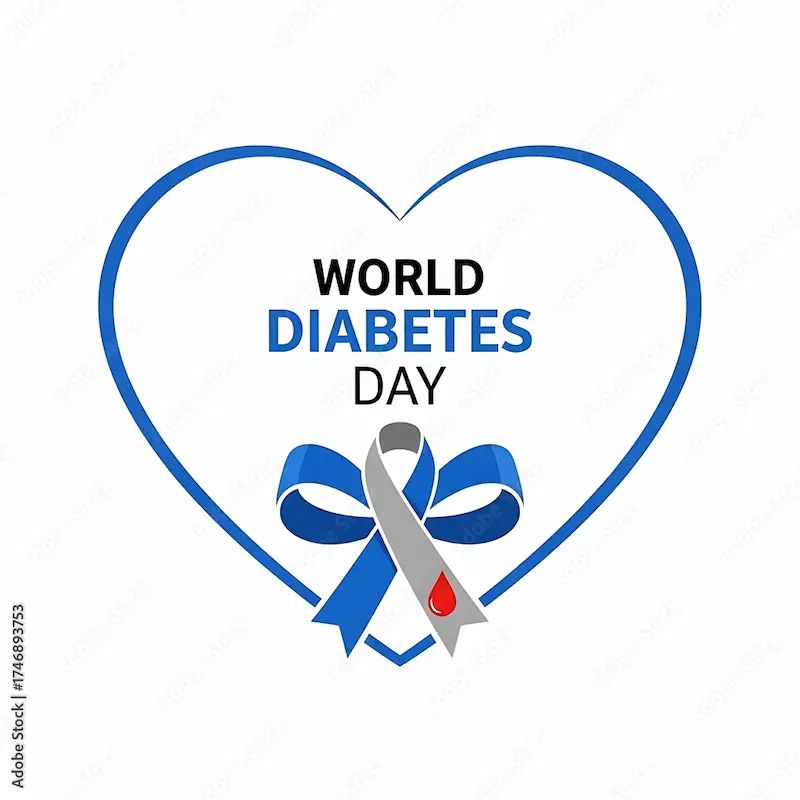Stevia And Diabetes Dangers
The article gives an outline of stevia and its role in diabetes management. While learning about its benefits, the article debunks myths about the dangers of stevia consumption. It adds to the safe usage and role of stevia in a healthy lifestyle.

Written by Dr.Sonia Bhatt
Last updated on 13th Jan, 2026

Overview of Diabetes
Diabetes is a chronic metabolic disease characterised by elevated levels of sugar in the bloodstream also known as Hyperglycaemia. A regulatory hormone “insulin” governs the uptake of blood glucose by the cells. Due to various reasons, the production of insulin is adversely affected leading to issues in glucose utilisation by body cells. This condition is known as “type 1 diabetes”. In another instance, body cells respond differently to insulin, once again creating problems with glucose utilisation. This condition involving insulin resistance is known as “type 2 diabetes.” Diabetes has become prevalent throughout the world. Prevalence has been rising more rapidly in low- and middle-income countries than in high-income countries. Diabetes when ignored for a long time can lead to serious side effects on the vital organs in the body such as the heart, kidneys, nerves, etc. It can be kept in check with the use of medicines and insulin injections. Diabetes can be treated and its consequences avoided or delayed with diet, physical activity, medication and regular screening and treatment for complications. In recent times various sugar substitutes are playing a key role in the management of diabetes by becoming an integral part of the diet.
What is stevia? An introduction to natural sweeteners
Stevia rebaudiana Bertoni (Asteraceae) is a small perennial shrub endemic to South America. Stevia contains compounds called steviol glycosides that are about 150–300 times sweeter than sugar. Due to its sweetening and pharmacological qualities, stevia has attracted international commercial attention and scientific interest as a sugar substitute or natural sweetener. Stevia sweeteners are made by extracting steviol glycosides from the leaves of the stevia plant and purifying them to remove some of the bitter attributes found in the crude extract. As stevia is significantly low in calories hence it is known as a “calorie-free bio-sweetener of high quality”.
Why is stevia popular among diabetic patients?
Stevia sweeteners are often recommended to individuals with diabetes as a sugar substitute, allowing them to enjoy sweetness while managing carbohydrate intake.
Chemical Composition and Sweetness Level Compared to Sugar
Not all species of stevia plants exhibit sweetening properties. Only 18 of the 150–300 species from the genus Stevia exhibit sweetening properties. Among them, Stevia rebaudiana is the sweetest variety. The sweetness of the plant is attributed to two major sweeteners- stevioside and rebaudioside A. Rebaudioside A is around 450-fold and stevioside 300-fold sweeter than sucrose (0.4% solution).
Impact of Stevia on Blood Glucose Levels
Steviol glycosides, the active compounds in stevia, are not absorbed in the upper digestive tract, making them calorie-free and without any rise in blood glucose levels. Stevioside has been shown to facilitate glucose transport into skeletal muscle and lower glycosylated haemoglobin levels (Hb1Ac). Additionally, stevia’s ability to inhibit enzymes like α-amylase and α-glucosidase may help slow carbohydrate metabolism and reduce hyperglycemia risk.
Consult Top Diabetologists To Know Impact Of Stevia On Glucose Level
Effects of Stevia on Insulin Sensitivity
Studies on diabetic rats and isolated pancreatic β-cells reveal that stevia can increase insulin production, improve insulin sensitivity, and enhance glycogen storage. One study showed that diabetic rats that consumed an aqueous extract from Stevia leaves had higher levels of insulin and glycogen than animals in the control group. An increase in insulin production was also observed in isolated mouse islets of Langerhans treated with rebaudioside A. In addition, stevioside can increase insulin sensitivity; in particular, low amounts of stevioside improved the effect of insulin on glucose transport into skeletal muscle.
Potential Interactions of Stevia with Diabetic Medications
Stevia has no known severe, serious, or moderate interactions with other drugs. However, considering the blood sugar-reducing properties of stevia, taking stevia along with diabetes medications might cause blood sugar to drop too low. One needs to monitor blood sugar closely as a caution.
Risks of Overconsumption of Stevia
Possible side effects of long-term consumption of stevia include nausea, bloating, low blood pressure, and hormone disruption. Additionally, chronic stevia consumption may put stress on the liver that results in an elevation in ALT, AST and altered bile output.
Regulatory Stance on Stevia Consumption
High-purity steviol glycosides, the active compounds in stevia, are classified as Generally Recognised As Safe (GRAS) by the U.S. FDA for specific uses. However, whole stevia leaves and crude extracts are not approved as food additives due to insufficient toxicological data. Leading global authorities, including the European Food Safety Authority (EFSA), JECFA, and regulatory bodies in Japan, Australia, and Canada, also confirm the safety of high-purity steviol glycosides within the acceptable daily intake (ADI) of 4 mg/kg body weight (equivalent to 12 mg/kg for rebaudioside A). This ADI is 100 times lower than the no-observed-adverse-effect-level (NOAEL) in toxicology studies, ensuring a significant safety margin. Consumption levels of stevia sweeteners globally and in the U.S. remain well below the ADI, with no concerns raised about exceeding it in the general population.
How to incorporate Stevia safely?
While incorporating stevia in diet one must keep a check on its recommended daily intake levels. One may use stevia in place of sugar to reduce calorie intake while maintaining sweetness. Examples:
Beverages: Adding stevia to coffee, tea, smoothies, or lemonade.
Baking: Using stevia-based sugar substitutes designed for cooking.
Snacks: Replacing sugar in homemade granola bars, yogurt, or salad dressings with stevia.
Evaluating Stevia-containing Products
Not all stevia products on the market are of high quality and counterfeit or adulterated products are rising. For instance, in one study analysing six commercial stevia products, three were found to be counterfeit, containing sodium cyclamate and traces of sodium saccharin.
Real Versus Perceived Dangers
While stevia is perceived to be dangerous in some aspects, the scientific evidence suggests otherwise. In continuation with the myths or perceived dangers of stevia mentioned earlier in the article, stevia is a natural sweetener and helps reduce calorie intake due to its sweetening properties. Its anti-cariogenic and anti-cancer properties have been backed by research. Its possible bitterness is removed while making stevia sweeteners. Stevia can be incorporated in a myriad of ways into daily diet. Overall, no significant risks or adverse effects have been reported from consuming high-purity stevia.
Conclusion
Stevia is a natural, calorie-free sweetener that offers a safe and effective alternative to sugar for individuals managing diabetes. It helps regulate blood glucose levels and improves insulin sensitivity while allowing for sweetness in the diet. When consumed within recommended daily limits, stevia is safe and versatile, with minimal side effects. Ensuring the use of high-quality, pure products can maximise its benefits. Overall, stevia is a valuable addition to a diabetes-friendly lifestyle.
Consult Top Diabetologists
Consult Top Diabetologists To Know Impact Of Stevia On Glucose Level

Dr. K Surya Pavan Reddy
Diabetologist
18 Years • MD (Gen. Med.), CDC, PGDD (AU)
Hyderabad
Apollo Hospitals Jubilee Hills, Hyderabad
(50+ Patients)

Dr Lekshmi Narendran
Diabetologist
10 Years • MBBS Diploma in Family medicine, Diploma in Diabetology
Bengaluru
Apollo Clinic, JP nagar, Bengaluru

Dr. Arif Ahmed
General Physician/ Internal Medicine Specialist
9 Years • MBBS, MD (Genl. Med.)
Kolkata
MCR SUPER SPECIALITY POLY CLINIC & PATHOLOGY, Kolkata

Dr. Arabinda Bera
General Physician/ Internal Medicine Specialist
20 Years • MBBS, PGDCC(CARDIOLOGY), CCEEDM(DIABETES)
Kolkata
MCR SUPER SPECIALITY POLY CLINIC & PATHOLOGY, Kolkata

Dr. Vivek D
General Physician
4 Years • MBBS
Bengaluru
PRESTIGE SHANTHINIKETAN - SOCIETY CLINIC, Bengaluru
Consult Top Diabetologists

Dr. K Surya Pavan Reddy
Diabetologist
18 Years • MD (Gen. Med.), CDC, PGDD (AU)
Hyderabad
Apollo Hospitals Jubilee Hills, Hyderabad
(50+ Patients)

Dr Lekshmi Narendran
Diabetologist
10 Years • MBBS Diploma in Family medicine, Diploma in Diabetology
Bengaluru
Apollo Clinic, JP nagar, Bengaluru

Dr. Arif Ahmed
General Physician/ Internal Medicine Specialist
9 Years • MBBS, MD (Genl. Med.)
Kolkata
MCR SUPER SPECIALITY POLY CLINIC & PATHOLOGY, Kolkata

Dr. Arabinda Bera
General Physician/ Internal Medicine Specialist
20 Years • MBBS, PGDCC(CARDIOLOGY), CCEEDM(DIABETES)
Kolkata
MCR SUPER SPECIALITY POLY CLINIC & PATHOLOGY, Kolkata

Dr. Vivek D
General Physician
4 Years • MBBS
Bengaluru
PRESTIGE SHANTHINIKETAN - SOCIETY CLINIC, Bengaluru


